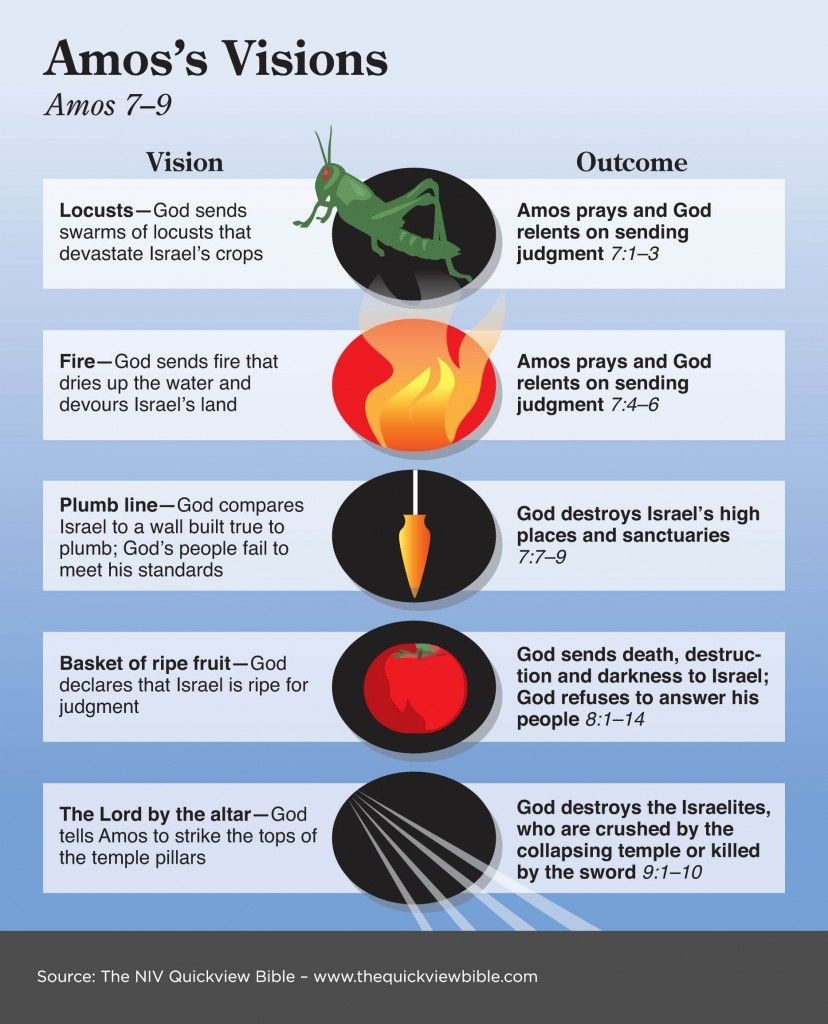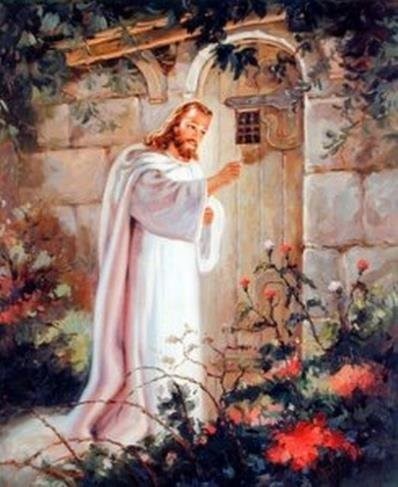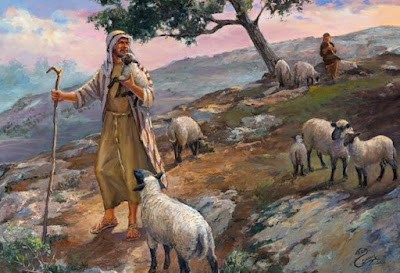Old Testament Reading – Isaiah 40:1-11 – New Testament Reading – Revelation 7:9-17
Return to Me
“Visions That Demand Response”
Amos 7:1-8:4
Wayne J. Edwards, Pastor
At the time of Amos’ prophecy, the nation of Israel was very prosperous financially and very powerful militarily.
- However, the people had become very comfortable in their material lives and very lazy in their spiritual lives.
- They had forgotten who had given them the land upon which they lived, as well as the power to gain wealth – they had forgotten to thank God for His blessings and to give Him the glory He deserved.
- Their spiritual corruption also included the worship of pagan gods with pagan rituals, which resulted in pagan behavior.
- Because they continued to participate in the temple services, including giving their tithes, offerings, and sacrifices, they thought they were acceptable unto God because He continued to bless them materially.
- However, seeing their worship for the sham it was, God sent a man to warn them of the judgment to come unless they repented of their sins and returned to Him.
|
“The Lord took me, as I followed the flock, and said unto me, go, prophesy unto my people Israel.”
Amos 7:15
|
Amos was a shepherd from a small town in the Judean hills.
- Each time Amos came into the city he could see the rise in the spiritual corruption of His people.
- Standing near the shrine at Bethel, Amos proclaimed God’s message, calling out the religious leaders for their disregard for the spiritual needs of the people.
- Amos reminded the people of the great blessing, as well as the great responsibility of being called God’s people, for having received so much from God, they would be held to a higher standard by God.
- Amos preached the same message wherever he went: “Repent and return unto God!”
In chapters 7-8, Amos closed his prophecy to Israel with five visions that demanded a response from the people.
- In Hebrews 2:1-2, the writer said, “In times past, God spoke to the fathers by the prophets.”
- In 2 Peter 1:20-21, the apostle wrote, “No prophecy was of any private interpretation, for the prophecy came, not by the will of man, but holy men of God spoke as they were moved by the Holy Spirit.”
- God spoke to the prophets, who spoke to the people, yet in the language and cultural vernacular of the people.
- Amos was not a priest, like Ezekiel, nor a man of intellect and eloquence, like Isaiah.
- Amos was a herdsman, a simple man, who communicated what God said to him in five “culturally relevant” visions.
- However, from these five visions, we can see how God deals with the unrepentant hearts of His people.
- Grace – He withholds His judgment.
- Rejection – the people reject God’s grace.
- Judgment – God allows their sin to take its toll.
- Promise – God saves a remnant through which He will fulfill His eternal promise of restoration.

|
“Behold, the days are coming says the Lord, that I will send a famine on the land; not a famine of bread, nor a thirst for water, but of hearing the word of the Lord. They shall wander from sea to sea, and from north to east; they shall run to and fro; seeking the word of the Lord but shall not find it.”
Amos 8:11-12
This can be interpreted two ways:
-
God would no longer be speaking to the Israelites.
-
God would continue to speak to the Israelites, but they would not be able to hear Him.
|
There comes a time, even in the realm of God’s mercy and grace, when God exercises His judgment by just leaving man alone.
- If a person, a church, or a nation continues to refuse to listen to God’s Word, God simply gives them up to their own desires, and He removes Himself from them.
- When Amos started preaching outside of their temples, the people covered their ears lest they hear him and be convicted.
- By their disregard for God’s Word, as demonstrated by their unwillingness to hear the prophet God had sent to them, God said He would give them what they desired – they would no longer be able to hear the Word of God.
- Thirty years after Amos gave his prophecy to God’s people, the Assyrians came and took the people captive.
- They weren’t allowed to continue their temple services.
- They weren’t allowed to hear their prophets preach.
- They weren’t allowed to read the Word of God they had neglected but now so desired.
|
 |
“Behold, I stand at the door and knock; if anyone hears My voice and opens the door, I will come into him and will dine with him, and he with Me”
(Revelation 3:20).
|
On Whose Door Is Christ Knocking?
- Since the context of the passage is within Christ’s letter to the church at Laodicea, the door upon which Christ was knocking was not that of a single person, but to all those who were in the Laodicean church, who professed to know Christ but had removed Him from their assembly.
- Laodicea represents the apostate church, the last church age, the church of our day. And while Christ is still knocking at the door of the Apostate church, the day will come when He will call the true believers to “come forth!”
- The true believers will be raptured from the earth, and the false believers will be spewed out and into the Tribulation.








